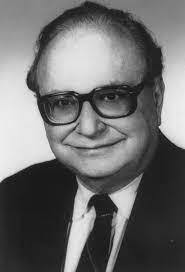Lipset, Seymour Martin

Bio: (1922-2006) American sociologist. Seymour Martin Lipset received his doctorate from Columbia University in 1949, and taught at the Universities of Toronto, Stanford, Columbia, Harvard and Berkeley. Lipset is one of the most important political sociologists of the second half of the twentieth century. He dealt with various topics: political alienation, classes, stratification and social mobility, democracy, party systems, voting behavior, socialism, trade unions and "Americanism".
Lipset has been studying democracy throughout his scientific career. He singles out the key features of democracy: the existence of constitutional possibilities for change of government, the existence of mechanisms that allow most people to get involved in the political process, the existence of a clear winner who organizes effective and efficient government, and the existence of effective opposition. In one of his first scientific papers, "Some Social Preconditions for Democracy" (1959), as well as a paper returning to the same topic after several decades, "Social Preconditions for Democracy, Re-Research" (1994), Lipset explores which social factors are necessary for the emergence of democracy in some country. Both papers are the product of a comparative statistical survey of a large number of countries. In these works, Lipset singled out the following factors as key to democracy: the level of socio-economic development that enables the existence of an educated population and a large middle class, developed industry and market economy, high urbanization, political culture that tolerates diversity and protects political and individual freedoms and rights, the Protestant religious tradition (a factor that was important until World War II). Democracy-supporting political leadership is also one of the key conditions for a stable democracy.
Lipset and Stein Rokkan studied political divisions in democracies in their book Party Systems and Voting Alignments (1967). They believe that political divisions have three main characteristics: divisions are the consequences of socio-cultural and socio-economic differences in a country's population; divisions create collective identities that form the basis of joint action; and differences and identities are expressed through organizations such as political parties or interest groups. As the main political divisions in European countries, they single out religious, geographical, and class divisions. These political divisions affect the formation of a specific party system in each state. The more levels of political divisions there are in a country, the more political parties there will be that will reflect those multiple divisions. The political divisions in European countries were most influenced by the following processes: the Protestant Reformation, the democratic revolutions, the industrial revolution, and the class conflicts between workers and capitalists. These two authors concluded that these processes led to the creation of major political divisions in most European countries before the First World War and that the divisions formed until then remain the most important political divisions to this day.
Throughout his career, Lipset has dealt with problems of class, stratification, and social mobility. In the books Class, Status and Power: Social Stratification in Comparative Perspective (1953) and Social Mobility in Industrial Society (1959), both co-authored with Reinhard Bendix, the authors present the results of comparative studies of class and mobility in multiple countries. Analyzing intergenerational mobility between father and son in the USA, Japan, Denmark, Germany, France, Great Britain, Italy, Sweden, and Switzerland, the authors concluded that mobility between manual and non-manual occupations (in both directions) in all countries is about 30 percent. They believe that similar percentages of mobility do not automatically mean the existence of "equal opportunities" in all of these countries. They also concluded that the real chances for upward mobility in the United States are less than the social perception of those chances was. In It Didn’t Happen Here (2000), Lipset studied the causes that led to the ideology of socialism failing to spread to the United States.
Lipset is also known for studying "Americanism", that is, the essence of the American socio-psychological character. He singles out five main elements of Americanism: commitment to political freedoms, egalitarianism, individualism, populism, and faith in the free market.
Fields of research
Character, Social Classes Conflict Conservative Ideology Culture Democracy Egalitarianism Freedom Identity Ideology Individualism Industry Inequality, Social Leaders Market Middle Class Mobility, Social Parties, Political Politics Power, Political Professions Protestantism Psychology Religion Socialism State Status Tolerance Tradition Voting Working ClassTheoretical approaches
Conservatism, SocialMain works
Class, Status, and Power: Social Stratification in Comparative Perspective (1953);
Union Democracy: The Inside Politics of the International Typographical Union (1956);
„Some Social Requisites of Democracy”, in American Political Science Review (1959);
Social Mobility in Industrial Society (1959);
Political Man (1960);
Culture and Social Character: The Work of David Riesman Reviewed (1961);
Class, Status, and Power: Social Stratification in Comparative Perspective, 2nd ed. (1966);
Party Systems and Voter Alignments: Cross-National Perspectives (1967);
The Politics of Unreason: Right-Wing Extremism in America, 1790–1977 (1978);
The Third Century: America as a Post-Industrial Society (1979);
The Confidence Gap: Business, Labor, and Government in the Public Mind (1983);
Unions in Transition (1986);
‘‘Are Social Classes Dying?’’, in International Sociology (1991);
„The Social Requisites of Democracy Revisited”, in American Sociological Review (1994);
American Exceptionalism: A Double-Edged Sword (1996);
It Didn’t Happen Here: Why Socialism Failed in the United States (2000);
Political Philosophy: Theories,Thinkers and Concepts (2001);
The Breakdown of Class Politics: A Debate on Post Industrial Stratification (2001);
The Democratic Century (2004).

